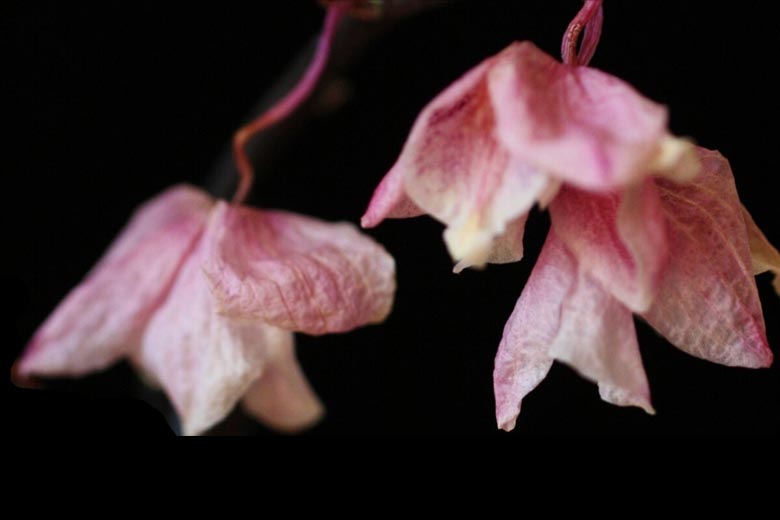Table of Contents
Orchids are one of the most popular houseplants among plant enthusiasts. With their beautiful blooms and long-lasting flowers, they add a touch of elegance and sophistication to any home. However, it can be frustrating when your orchid starts to lose its flowers, especially if you’ve been taking good care of it. In this article, we’ll explore some of the common reasons why orchids lose their flowers and what you can do to prevent it from happening again.
Understanding the Lifecycle of an Orchid
Before we dive into the reasons why your orchid is losing its flowers, it’s important to understand the plant’s lifecycle. Orchids are unique in that they have a natural growth cycle that includes periods of growth, dormancy, and blooming. During the active growth phase, the plant produces new leaves, roots, and eventually a flower spike. Once the flowers have bloomed, the plant enters a dormant phase where it conserves energy and prepares for the next growth cycle.
Understanding this lifecycle is essential because it helps you identify whether your orchid is simply going through a natural phase or if there’s an underlying issue causing it to lose flowers. For example, if your orchid has just finished blooming, it’s natural for it to enter a dormant phase where it may lose some of its leaves and flowers.
Common Reasons Why Orchids Lose Their Flowers
There are several reasons why your orchid may be losing its flowers. Here are some of the most common causes:
Lack of proper care and maintenance
One of the most common reasons why orchids lose their flowers is due to a lack of proper care and maintenance. Orchids are delicate plants that require specific growing conditions to thrive. If you’re not providing your orchid with the right amount of light, water, and nutrients, it can cause the plant to become stressed and lose its flowers.
For example, if your orchid isn’t getting enough light, it may not have enough energy to produce and maintain its flowers. On the other hand, if you’re overwatering your orchid, it can cause the roots to rot and prevent the plant from absorbing the nutrients it needs to produce flowers.
Environmental factors that affect orchids
Another common reason why orchids lose their flowers is environmental factors. Orchids are native to tropical climates and require warm temperatures, high humidity, and good air circulation to thrive. If your orchid is exposed to extreme temperatures, low humidity, or stagnant air, it can cause the plant to become stressed and lose its flowers.
For example, if your orchid is placed near a drafty window or air conditioning vent, it can cause the plant to become too cold or dry out quickly. Similarly, if your orchid is exposed to direct sunlight for too long, it can cause the flowers to wilt and fall off.
Pests and diseases that can cause flower loss
Finally, pests and diseases can also cause orchids to lose their flowers. Common pests that affect orchids include spider mites, scale insects, and mealybugs. These pests can damage the plant’s leaves and flowers, causing them to wilt and fall off.
Diseases such as root rot, bacterial soft rot, and fungal infections can also affect orchids. These diseases can cause the plant to become weakened, making it difficult for it to produce and maintain its flowers.
How to Prevent Orchids from Losing Their Flowers
Now that we’ve identified some of the common reasons why orchids lose their flowers, let’s explore some ways to prevent it from happening.
Best practices for caring for orchids
The first step in preventing your orchid from losing its flowers is to ensure that you’re providing it with the right care and maintenance. Here are some best practices for caring for orchids:
- Water your orchid only when the potting medium is dry to the touch.
- Provide your orchid with bright, indirect light.
- Use a well-draining potting mix that allows for good air circulation.
- Maintain a warm temperature and high humidity around the plant.
- Fertilize your orchid regularly with a balanced fertilizer.
Troubleshooting common issues with orchids
If you notice that your orchid is losing its flowers despite your best efforts, there may be an underlying issue that needs to be addressed. Here are some common issues and how to troubleshoot them:
- If your orchid isn’t getting enough light, move it to a brighter location.
- If your orchid is overwatered, allow the potting mix to dry out before watering again.
- If pests or diseases are affecting your orchid, treat it with an appropriate pesticide or fungicide.
- If your orchid is entering a natural dormant phase, allow it to rest and conserve energy until it begins to produce new growth.
Conclusion
In conclusion, orchids are beautiful and exotic plants that can add a touch of elegance to any home. However, they require specific care and maintenance to thrive and produce long-lasting flowers. If your orchid is losing its flowers, it’s important to identify the underlying issue and take steps to prevent it from happening again. By providing your orchid with the right growing conditions and troubleshooting issues as they arise, you can enjoy the beauty of your orchid for years to come.

